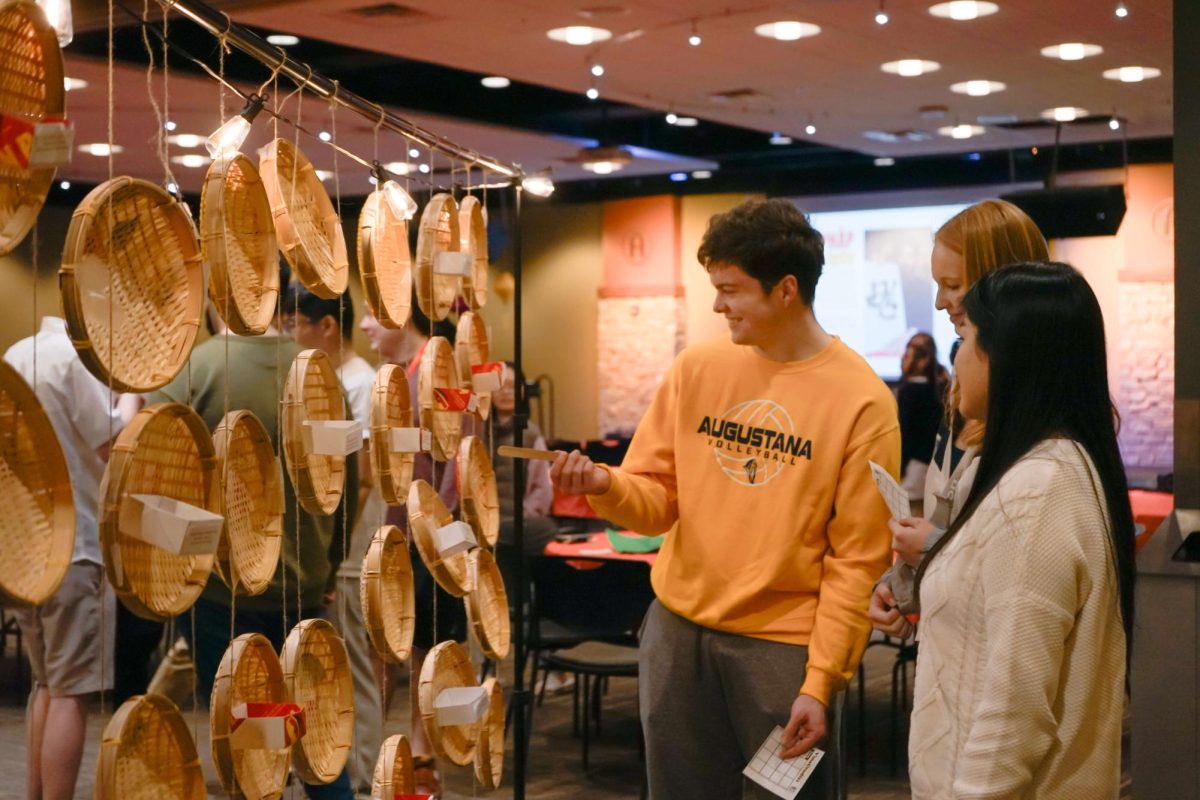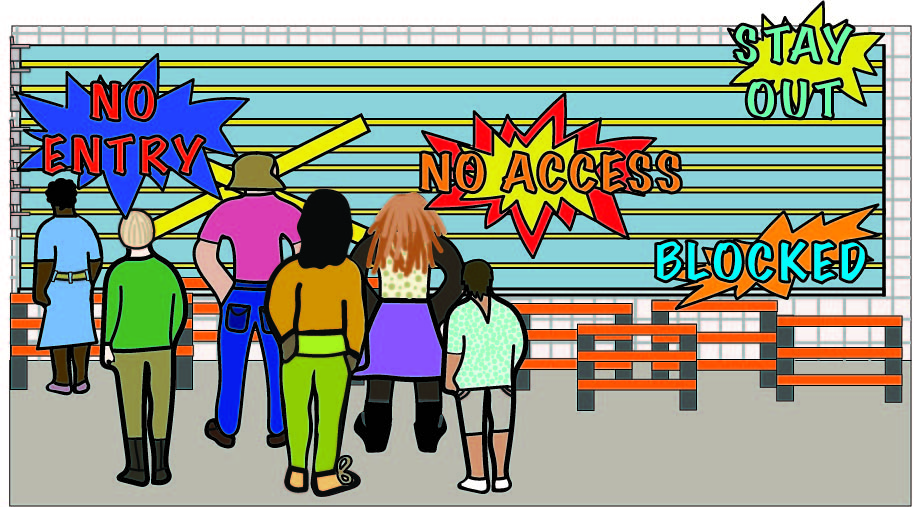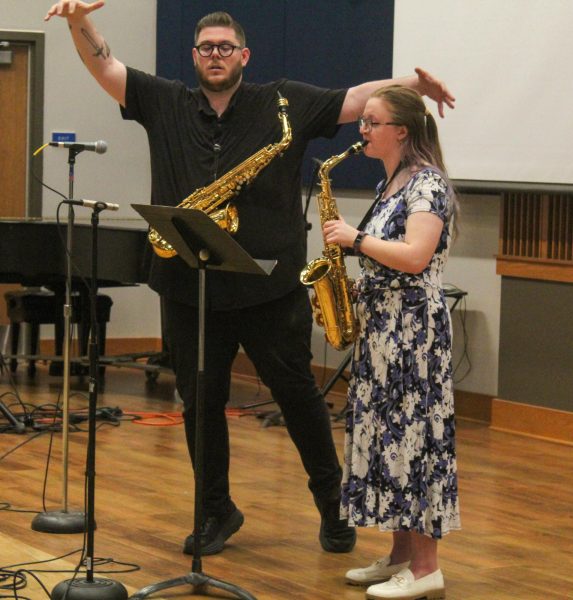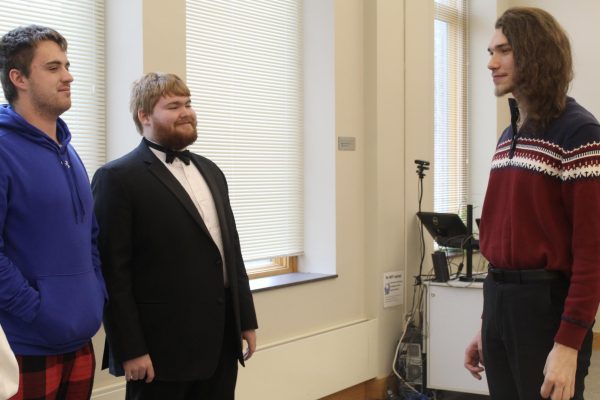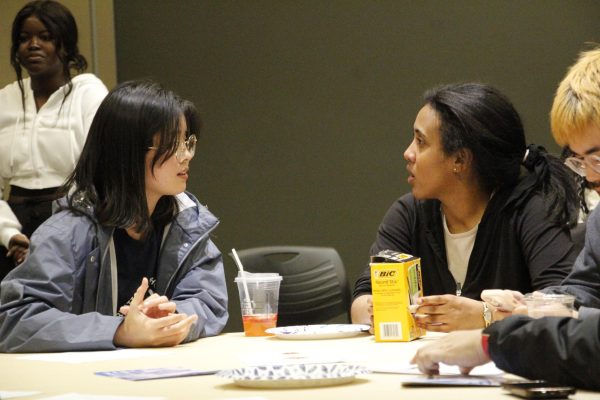Inflated college costs and deflated wallets
October 15, 2022
Being able to budget for education, needs and fun strikes a delicate balance, and this year, inflation disrupted it. While the increase in tuition at Augustana may be invisible to first-years who don’t have a past price to compare it to, it is impossible to miss for returning students.
It’s hard to define the tuition increase as a surprise, as inflation and its reach have widely impacted the overall economy, but it’s an unwelcome change nonetheless.
Senior Gabriel Vallejo pays for rent and personal needs out of pocket while having had some help with tuition from his parents.
“It definitely adds a lot of stress to an already stressful life of a full time student,” Vallejo said.
Knowing inflation was coming didn’t stop it from creating stressful situations. Students now have to find ways to compensate for a price they didn’t plan on.
Sophomore Anna Ramberg largely pays for her tuition as well.
“It’s understandable, but I was obviously upset because that’s just more I have to take out in loans,” Ramberg said.
Surprise wasn’t the main factor that made the increase upsetting. Instead, the lagging support systems for students, such as financial aid, were the main cause of stress.
Sophomore Gavin Nicoson also pays for the bulk of tuition out of pocket.
“Not necessarily shocking, but upsetting,” Nicoson said. “I knew it was kind of inevitable, because this sort of thing happens at basically every university every year. But it was kind of a shame to see that the financial aid didn’t increase and the pay for on-campus work didn’t increase while they were expecting us to pay more.”
Communication from the school about the increase provided a warning but not peace of mind. “In emails, I remember them saying it’d be an increase. I don’t exactly remember if there was a whole explanation. And if there was, it wasn’t memorable to me,” Ramberg said.
While an email wasn’t memorable to some students, others recalled the information shared about tuition increasing.
“They did send out an email. The way that it was explained was that the cost of running Augustana grew,” Nicoson said.
Despite Augustana communicating the price increase, students still weren’t prepared for the effects on the upcoming school year.
“It means I have to look for more grants and scholarships,” Ramberg said. “When I looked at the interest and everything, I was like, oh my gosh, I have so much debt already.”
Some students seemed to expect aid to increase with the tuition, and when it didn’t, it caused distress.
“It’s kind of frustrating considering when I came to college, my financial aid essentially allowed me to go here tuition free and I only had to pay for housing and stuff like that,” Vallejo said. “But now I’m not even on campus I’m still paying money, which is really frustrating.”
For other students, this change may even come at as high of a price as their future at Augustana.
“I don’t know if I’m going to be able to go here for the whole four years,” Nicoson said. “So before it was never exactly set in stone that I was gonna be able to have the money put together but it’s looking like now, I worked two jobs over the summer consistently. And it still wasn’t enough to make up for my whole year.”
Students knew Augustana would be costly, but they made the decision to attend because they found unique qualities beyond the price that they believed would make them happy to be here.
“I knew it [was] going to be more expensive, so I was prepared for a lot of loans and for it to be a lot in tuition,” Ramberg said. “It just was really inconvenient and also more trouble for it to increase further.”
Increasing costs causing students to reevaluate their decision to attend Augustana shows just how much of a difference the new price really makes.
“I’ve invested two years into it, or a year and a half into it. And I’m doing well. I’d like not to have to cut that short because I just can’t afford it,” Nicoson said. “I like the environment at Augie.”
Ultimately, the college can’t control the economy. However, students have suggestions as to how the school could have, and still can, offset the increase. Raising the pay for student workers is the main solution suggested. The student wage just doesn’t satisfy the prices students have to pay.
“I would actually be compelled to work here if it wasn’t so minuscule compared to the actual tuition costs,” Nicoson said.
The tuition price inflating while the student wage doesn’t increase creates problems with the practicality of working on campus and creates a question about if more can be done to help with the gap.
“That’s what I would often talk to my coworkers about, that they’re upping the tuition, but our employee wages aren’t changed at all compared to inflation,” Ramberg said. “And I think obviously, there’s a lot of upset student employees for that. When I’ve heard my coworkers, they’re using their wages to pay for daily necessities and stuff, which are things that I feel like Augustana could help us with.”
The low pay then drives students off campus for employment, which brings problems of its own.
“I was considering working on campus for a while, but because they pay so little I had to get another job bartending so that I could actually make enough money to subsist,” Vallejo said.
If pay was raised, then students would save commute time which could be converted into study time assisting with time management rather than making them choose between working and studying.
“As someone who is about to go into the workforce for my actual career, the biggest thing I want to focus on is my GPA,” Vallejo said. “And it’s really hard when I’m just trying to focus on getting by and paying rent.”
Students are again vocalizing a desire for increased pay. It’s an issue that should be prioritized more than ever with the added costs wreaking havoc on student budgets.
“I think it would help a lot if the students that were working here were able to be heard by Augie, because I know they’ve made statements in the past about wage increases,” Nicoson said. “Maybe reconsider those because you have students who are now paying more for essentially the same services and somehow you, as an institution, are able to pay the same amount for their services; just doesn’t seem equitable.”
Besides jobs on campus becoming more competitive, getting assistance concerning day-to-day expenses around campus would be another welcomed improvement.
“I feel like even when it comes to the small things like laundry fees or printing fees, all those things add up,” Ramberg said. “And then they’re also obviously upping prices in the C-store and stuff like that for products and that makes everything else more expensive. It is more money out of our pocket.”
Students understand that Augie isn’t immune to inflation. However, they want to see a proportional increase in support. Whether that means financial aid, day-to-day expenses or increasing wages for student workers, any of these efforts will be helpful to students and their success.
“I hope that the college chooses to prioritize the students a little more. I know they already do a pretty decent job, but … just the financial aspect of it is definitely what a lot of students worry about,” Vallejo said. “And if they try to prioritize a little more on curbing the stress of that I think it would be a lot better for the image of the college and the performance of the students.”













